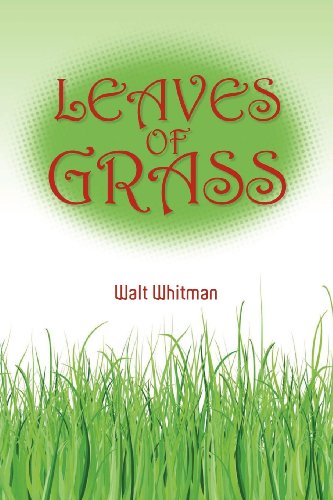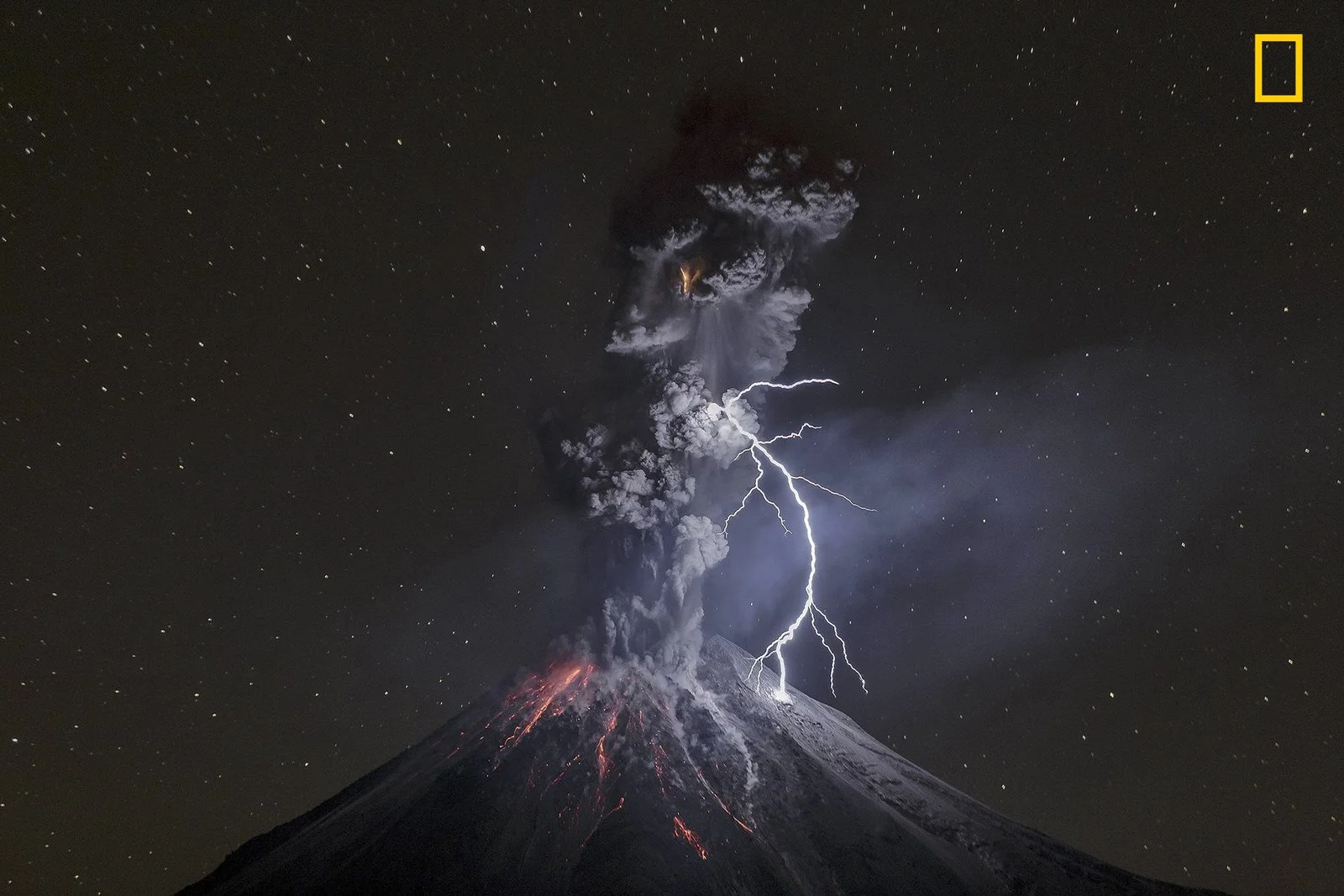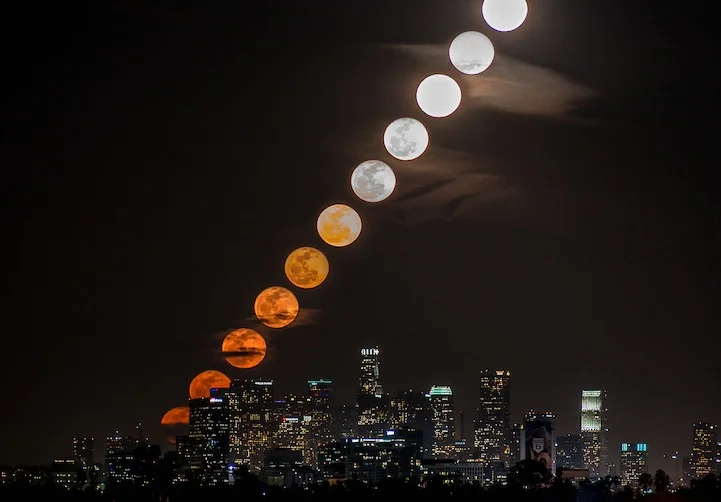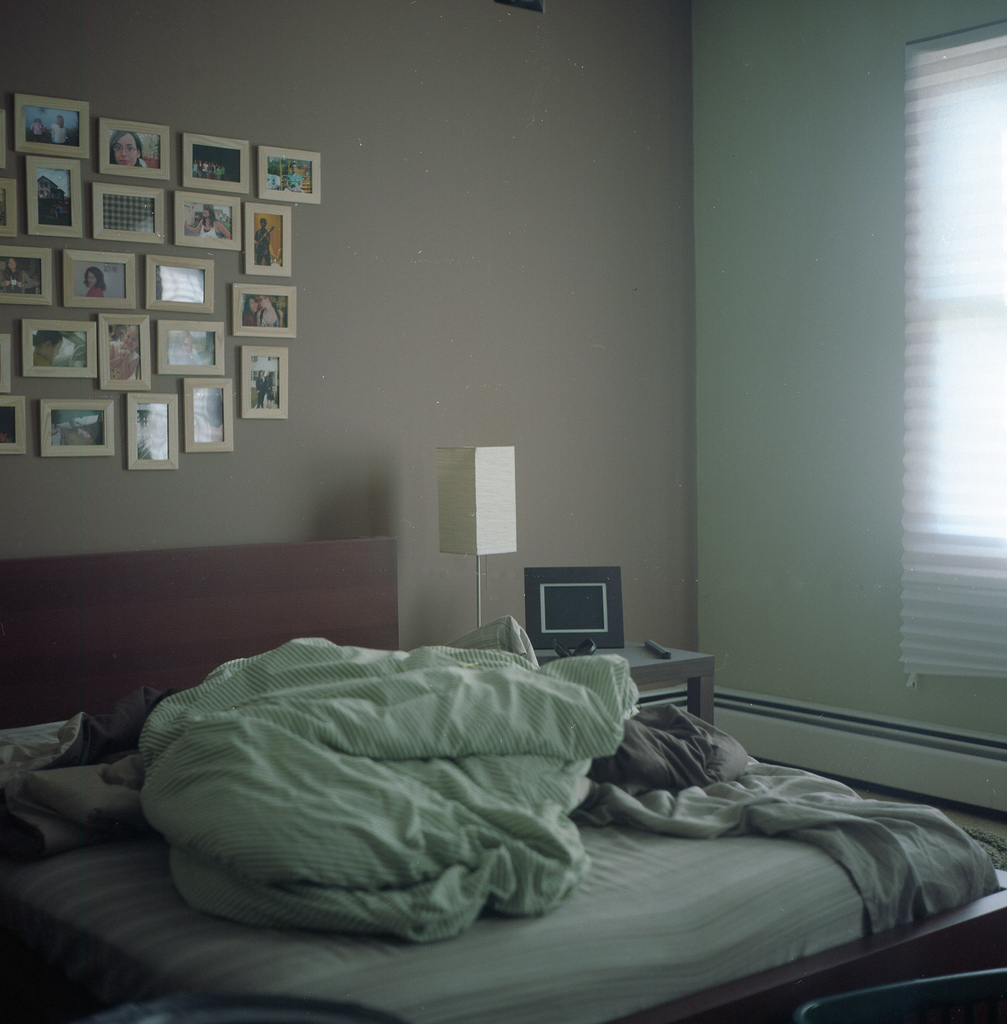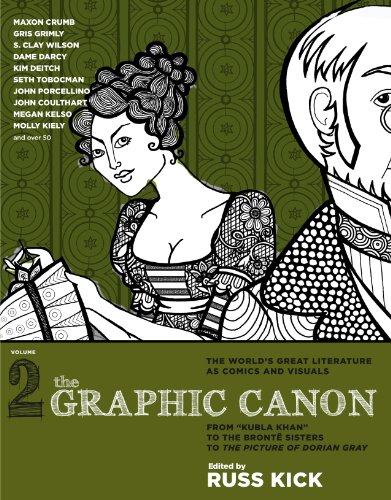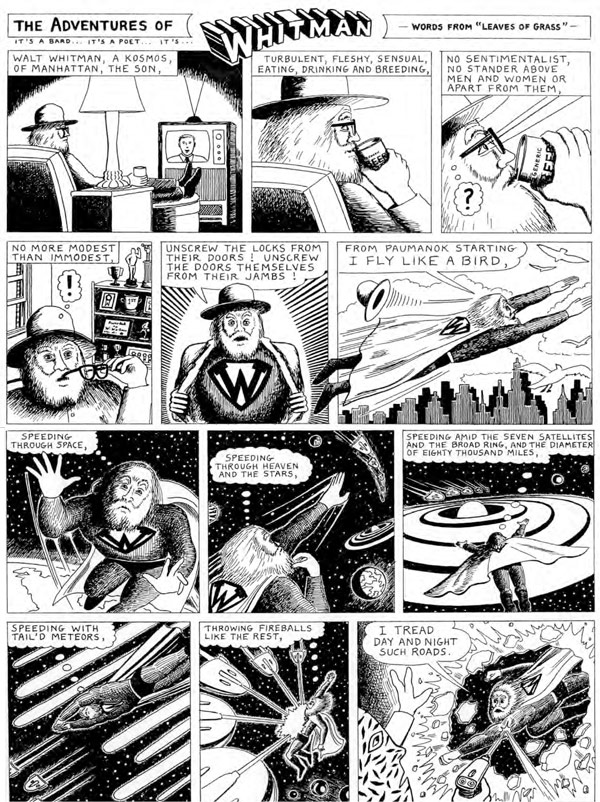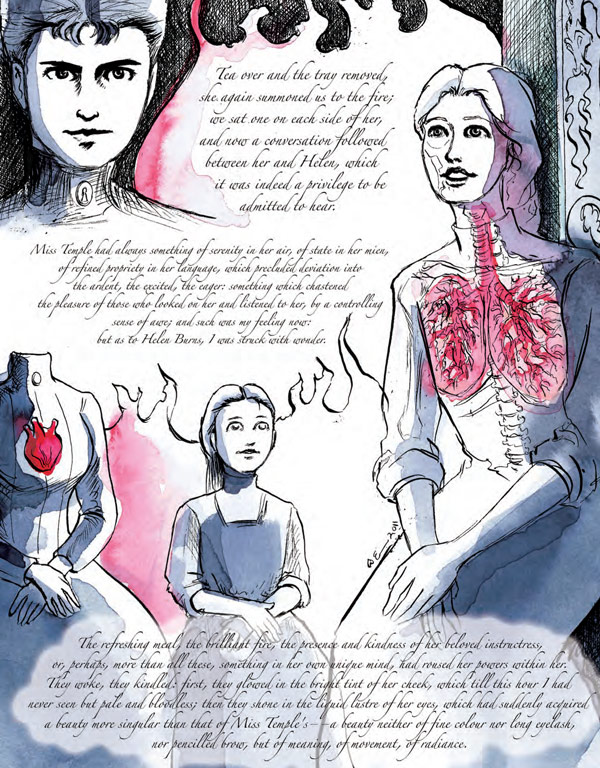POTD - The Sleepers - Parts 5 & 6 by Walt Whitman
5
Now of the older war-days, the defeat at Brooklyn,
Washington stands inside the lines, he stands on the
intrench'd hills amid a crowd of officers,
His face is cold and damp, he cannot repress the
weeping drops,
He lifts the glass perpetually to his eyes, the color
is blanch'd from his cheeks,
He sees the slaughter of the southern braves confided
to him by their parents.
The same at last and at last when peace is declared,
He stands in the room of the old tavern, the
well-belov'd soldiers all pass through,
The officers speechless and slow draw near in their
turns,
The chief encircles their necks with his arm and kisses
them on the cheek,
He kisses lightly the wet cheeks one after another, he
shakes hands and bids good-by to the army.
6
Now what my mother told me one day as we sat at dinner
together,
Of when she was a nearly grown girl living home with
her parents on the old homestead
A red squaw came one breakfast-time to the old
homestead,
On her back she carried a bundle of rushes for
rush-bottoming chairs,
Her hair, straight, shiny, coarse, black, profuse,
half-envelop'd her face,
Her step was free and elastic, and her voice sounded
exquisitely as she spoke.
My mother look'd in delight and amazement at the
stranger,
She look'd at the freshness of her tall-borne face and
full and pliant limbs,
The more she look'd upon her she loved her,
Never before had she seen such wonderful beauty and
purity,
She made her sit on a bench by the jamb of the
fireplace, she cook'd food for her,
She had no work to give her, but she gave her
remembrance and fondness.
The red squaw staid all the forenoon, and toward the
middle of the afternoon she went away,
O my mother was loth to have her go away,
All the week she thought of her, she watch'd for her
many a month,
She remember'd her many a winter and many a summer,
But the red squaw never came nor was heard of there
again.
Timelapses
POTD - The Sleepers - 2, 3 & 4 by Walt Whitman
2
I descend my western course, my sinews are flaccid,
Perfume and youth course through me and I am their
wake.
It is my face yellow and wrinkled instead of the old
woman's,
I sit low in a straw-bottom chair and carefully darn my
grandson's stockings.
It is I too, the sleepless widow looking out on the
winter midnight,
I see the sparkles of star shine on the icy and pallid
earth.
A shroud I see and I am the shroud, I wrap a body and
lie in the coffin,
It is dark here under ground, it is not evil or pain
here, it is blank here, for reasons.
(It seems to me that every thing in the light and air
ought to be happy,
Whoever is not in his coffin and the dark grave let him
know he has enough.)
3
I see a beautiful gigantic swimmer swimming naked
through the eddies of the sea,
His brown hair lies close and even to his head, he
strikes out with courageous arms, he urges himself
with his legs,
I see his white body, I see his undaunted eyes,
I hate the swift-running eddies that would dash him
head-foremost on the rocks.
What are you doing you ruffianly red-trickled waves ?
Will you kill the courageous giant? will you kill him
in the prime of his middle age?
Steady and long he struggles,
He is baffled, bang'd, bruis'd, he holds out while his
strength holds out,
The slapping eddies are spotted with his blood, they
bear him away, they roll him, swing him, turn him,
His beautiful body is borne in the circling eddies, it
is continually bruis'd on rocks,
Swiftly and out of sight is borne the brave corpse.
4
I turn but do not extricate myself,
Confused, a past-reading, another, but with darkness
yet.
The beach is cut by the razory ice-wind, the wreck-guns
sound,
The tempest lulls, the moon comes floundering through
the drifts.
I look where the ship help lessly heads end on, I hear
the burst as she strikes, I hear the howls of
dismay, they grow fainter and fainter.
I cannot aid with my wringing fingers,
I can but rush to the surf and let it drench me and
freeze upon me.
I search with the crowd, not one of the company is
wash'd to us alive,
In the morning I help pick up the dead and lay them in
rows in a barn.
Photo by flickr/ben▐
POTD - The Sleepers - Part 1 by Walt Whitman
The Sleepers
by Walt Whitman
1
I wander all night in my vision,
Stepping with light feet, swiftly and noiselessly stepping and stopping,
Bending with open eyes over the shut eyes of sleepers,
Wandering and confused, lost to myself, ill-assorted, contradictory,
Pausing, gazing, bending, and stopping.
How solemn they look there, stretch'd and still,
How quiet they breathe, the little children in their cradles.
The wretched features of ennuyes, the white features of corpses, the livid faces of drunkards, the sick-gray faces of onanists,
The gash'd bodies on battle-fields, the insane in their strong-door'd rooms, the sacred idiots, the new-born emerging from gates, and the dying emerging from gates,
The night pervades them and infolds them.
The married couple sleep calmly in their bed, he with his palm on the hip of the wife, and she with her palm on the hip of the husband,
The sisters sleep lovingly side by side in their bed,
The men sleep lovingly side by side in theirs,
And the mother sleeps with her little child carefully
wrapt.
The blind sleep, and the deaf and dumb sleep,
The prisoner sleeps well in the prison, the runaway son
sleeps,
The murderer that is to be hung next day, how does he
sleep?
And the murder'd person, how does he sleep?
The female that loves unrequited sleeps,
And the male that loves unrequited sleeps,
The head of the money-maker that plotted all day
sleeps,
And the enraged and treacherous dispositions, all, all
sleep.
I stand in the dark with drooping eyes by the
worst-suffering and the most restless,
I pass my hands soothingly to and fro a few inches from
them,
The restless sink in their beds, they fitfully sleep.
Now I pierce the darkness, new beings appear,
The earth recedes from me into the night,
I saw that it was beautiful, and I see that what is not
the earth is beautiful.
I go from bedside to bedside, I sleep close with the
other sleepers each in turn,
I dream in my dream all the dreams of the other
dreamers,
And I become the other dreamers.
I am a dance--play up there! the fit is whirling me
fast!
I am the ever-laughing--it is new moon and twilight,
I see the hiding of douceurs, I see nimble ghosts
whichever way I look,
Cache and cache again deep in the ground and sea, and
where it is neither ground nor sea.
Well do they do their jobs those journeymen divine,
Only from me can they hide nothing, and would not if
they could,
I reckon I am their boss and they make me a pet
besides,
And surround me and lead me and run ahead when I walk,
To lift their cunning covers to signify me with
stretch'd arms, and resume the way;
Onward we move, a gay gang of blackguards! with
mirth-shouting music and wild-flapping pennants of
joy!
I am the actor, the actress, the voter, the politician,
The emigrant and the exile, the criminal that stood in
the box,
He who has been famous and he who shall be famous after
to-day,
The stammerer, the well-form'd person, the wasted or
feeble person.
I am she who adorn'd herself and folded her hair
expectantly,
My truant lover has come, and it is dark.
Double yourself and receive me darkness,
Receive me and my lover too, he will not let me go
without him.
I roll myself upon you as upon a bed, I resign myself
to the dusk.
He whom I call answers me and takes the place of my
lover,
He rises with me silently from the bed.
Darkness, you are gentler than my lover, his flesh was
sweaty and panting,
I feel the hot moisture yet that he left me.
My hands are spread forth, I pass them in all
directions,
I would sound up the shadowy shore to which you are
journeying.
Be careful darkness! already what was it touch'd me?
I thought my lover had gone, else darkness and he are
one,
I hear the heart-beat, I follow, I fade away.
Whitman is one of those figures who arrives at your doorstep packed with some many other people's opinion about him, but once I finally unwrapped him I was struck by his inimitable spirit most of all.
1 - Literary Canon as Graphic Novels
Oh what a joy it is (for me anyway) to see some of my most loved stories, poems and novels given the graphic treatment. The Graphic Canon, Vol. 2: From "Kubla Khan" to the Bronte Sisters to The Picture of Dorian Gray brings together such favorites as Huck Finn, Moby Dick and Leaves of Grass. I think that for the ones I haven't read, the visuals rob me of the opportunity of imagining them myself. But for the ones I have read and imagined, it is so much fun to see a radical and fresh image.
Moby Dick, for example (perhaps my favorite of the bunch) is so radically different in the hands of artist Matt Kish, It is almost an invitation to have a conversation about what it is I did imagine on my own.







